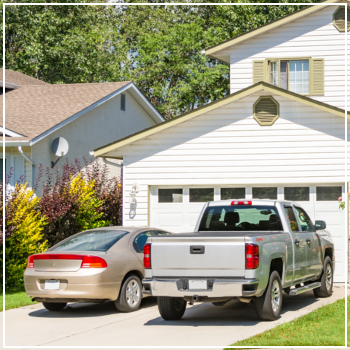While these measures are crucial to curbing the spread of COVID-19, it’s leaving many cars idle in driveways or garages. Less wear and tear means saving money on gas, but neglecting your vehicle during this downtime can lead to some hidden issues. Your car's battery might start losing its charge, rodents could turn your engine bay into a cozy nest, and parts may begin to corrode. To keep your car in tip-top shape until you're back on the road, here are some essential steps to take during this period of inactivity. Unless you're making quick trips to the store, your car probably isn't getting enough mileage. Aim to drive it for at least 20 minutes once a week to: This applies even to electric or hybrid vehicles. Although the charging system should keep the battery topped up, idling for too long can still lead to discharge over time. If you can’t drive consistently, consider using a trickle charger. Alternatively, you might want to remove the battery and the tires entirely if you’re planning to leave the car unused for an extended period. How well you’ve cared for your car after winter and where you store it will determine how much cleaning it needs now. Leaving your car uncovered in the driveway exposes it to sun damage, bird droppings, sap, and dust. Add to that the accumulated grime and salt from winter driving, and your car might need a thorough scrub. Start by treating the interior like you would your living room—disinfect the cabin thoroughly, wiping down seats, armrests, the console, and the steering wheel. A bleach-based cleaner isn’t recommended. Instead, use a microfiber cloth dipped in a 70% isopropyl alcohol and 30% water solution—this works well for plastic surfaces but avoid suede and leather. For the exterior, either park your car in the shade or invest in a weatherproof cover. If neither option is feasible, make it a point to wash or spot-clean your vehicle regularly to prevent contaminants from damaging the paint. Remember to steer clear of bleach, hydrogen peroxide, and ammonia when cleaning your car, as these can harm screens and upholstery. Your tires can develop flat spots if your car stays stationary for more than a month, especially in cold weather with low air pressure. To prevent this, check the tire pressure frequently. Inflate them to the recommended PSI found inside the driver’s door. Leaving your parking brake engaged for an extended period can cause the brake pads to bond with the rotors, leading to rust on the rotor surface. Taking a drive helps reduce this risk, but if you know you won’t be driving often, it’s better to release the parking brake. Rats, mice, and squirrels can wreak havoc on your vehicle. They might chew through wires, build nests, or stash food in your engine, which could render your car unusable. Since a parked car provides an ideal hiding spot, check under the hood for nests and inspect the tires and wheel wells for signs of pests. If you anticipate being at home for several more months, consider treating your car like a seasonal vehicle. In addition to a weatherproof cover and regular cleanings, perform these maintenance tasks: Car maintenance remains an essential service in many states. DaSilva’s Auto Body is currently providing “No Touch†services to keep your vehicle in excellent condition. If you require maintenance during the pandemic, reach out to our Naugatuck shop today. Snow Bicycle Tire,Puncture Resistant For Mountain Bike ,Electric Off Road Bike Fat Tire,Electric Bike Big Tire HEBEI HONGYANG TIRE CO.,LTD , https://www.hongyangtyre.com For most Americans, the stay-at-home orders have brought their daily commutes to a halt. People are venturing out less frequently, except for those occasional trips to the grocery store or pharmacy.
For most Americans, the stay-at-home orders have brought their daily commutes to a halt. People are venturing out less frequently, except for those occasional trips to the grocery store or pharmacy. Take It for a Spin Weekly
Keep Both the Interior and Exterior Spotless
Inspect Your Tires Regularly
Be Cautious with the Parking Brake
Look Out for Pests
Prepare for Long-Term Storage
How to Take Care of Your Car While Sheltering in Place
Made of high-quality rubber materials, Hongyang bicycle tires have good wear and puncture resistance
making them suitable for long-term cycling in rugged mountains and streets.
The anti slip properties of studded bike tires patterns have good grip and less resistance in sandy and snowy
terrain making them suitable for beach bikes and snowy cycling.
Puncture proof bike tires suitable for off-road bicycles, ebike, snow bike, mountain bikes and road bikes.